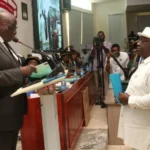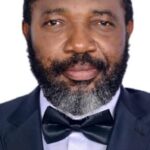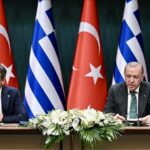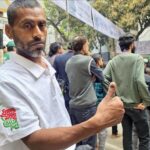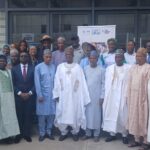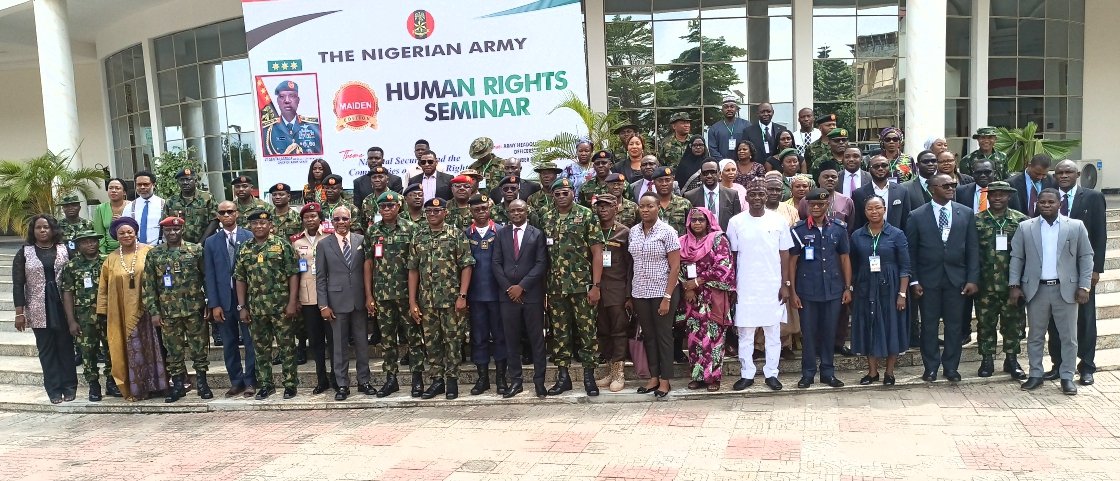By Sumaila Ogbaje
The Nigerian Army Chief of Civil-Military Affairs, Maj.-Gen. Nosakhare Ugbo, says the massive deployment of troops for military operations among the civil populace requires new approach in handling human rights issues.
Ugbo said this at the maiden seminar on human rights, organised for troops of the Nigerian Army, on Wednesday in Abuja.
The seminar has the theme, “National Security and the Complexities of Human Rights”.
Ugbo said the seminar was part of multidimensional approaches adopted by the Nigerian army in dealing with human rights issues within the contemporary operating environment.
He said the army as a professional force created by law, would always operate within the ambit of the law, including International Humanitarian Law and the Law of Armed Conflict.
“To its credit, the Nigerian army has operated in places like Sudan, Liberia, Sierra Leone, Congo, Angola, former Yugoslavia and many other places outside Nigeria without any significant infringements on the rights of the civil populace,” he added.
Ugbo however said that the Army would continue to educate troops engaged in internal security operations in all states of Nigeria, to respect the rights of citizens.
“Thus, this seminar is one of the means of dealing with human rights issues arising within the contemporary operating environment.
“The seminar will expose participants to the values and perspectives of organizations engaged in human rights advocacy and the protection of civilians in conflict areas.
“It will also expose us all to the values and perspectives of the Nigerian Army as well as other security agencies engaged in the conduct of operations for the defence and protection of civilians while upholding human rights,” he added.
Ugbo said that whenever troops were deployed for internal security operations, it was pricipally to protect civilians and their rights.
He added that the army and human right groups share common goals, which is the protection of innocent civilians in conflict areas.
According to him, this underscores the relevance of the interface between the Army human right groups provided by the seminar
The Executive Secretary, National Human Rights Commission (NHRC), Mr Tony Ojukwu, represented by Deputy Director Legal, Mr Kabiru Aliyu, commended the army for organising the seminar.
Ojukwu said the seminar represents a strategic effort to reinforce the constitutional role of the Nigerian army and other services in strengthening national security.
He said it also highlighted the need to promote and protect human rights in line with human rights and humanitarian norms and tenets.
According to him, the National Security Strategy 2019 has indicated that kidnapping, banditry and militia activities constitute about 40 per cent of the security challenges in Nigeria.
Ojukwu observed that the current security challenges had led to widespread violations of international humanitarian and human right laws and raised the risks in protecting civilians.
These risks according to him, loss of lives, the sacking of communities and displacement of civilians from their original places of habitation.
“This has led to multidimensional poverty, sexual and gender based violence and lack of access to justice.
“It is significant that the National Security Strategy and other related policies articulate a human security and people centered approach to deal the emerging security threats in the country.”
Ugbo said this would sustain the country’s political, economic and social stability, and marshal support for the military from the civil populace.
“We are encouraged by the relentless efforts of the Nigerian army to foster a deeper understanding of the intersection between the imperatives of national security and the complexities of human rights in Nigeria.
“It is worthy to mention that the National Human Rights Commission has established a strong synergy with the military and other law enforcement agencies.
“This has resulted in improved relations with the military and recorded tremendous success in the promotion and protection of human rights in Nigeria,” he said.
In a lecture, the Country Director, Center for Civilians in Conflict, Dr Benson Olugbo, canvassed for constant dialogue and discussions between the military and civilians on issues of human right.
Olugbo said the reality was that the military would never win the battle without winning the hearts and minds of the civil populace.
He added that there was need to infuse non kinetic means into military operations, in addition to the protection of the rights of civilians in conflict areas.
Olugbo’s lecture was titled, “Defeating Terrorists While Upholding Human Rights”.
Similarly, Mr Gad Shamaki, Executive Director, Cleen Foundation, said there was need to dispel the wrong notion that the military has no no respect for human rights.
Shamaki delivered a lecture titled, “Combating Violent Security Threats in Nigeria: Balancing Human Rights with National Security”.
He agreed that there were bound to be issues of human rights violation during internal security operations by the military.
He said conversation at the seminar was to strengthen existing relationship and give people more insight into the workings of the army.
Shamaki added that the should also explore what should be done to ensure that people show respect to the military when doing their jobs and when issues of human rights occur.
“I know there is a lot of effort in the military for civil military relations that need to be made known so that people know who to speak to, where to go and raise those kind of concerns,” he said. (NAN) (www.nannews.ng)
Edited by Benson Iziama/Maharazu Ahmed


